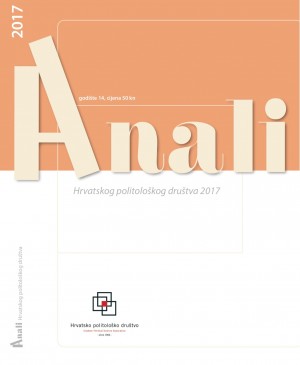Alternativa za Njemačku: program, vodstvo i birači
Alternative for Germany: Program, Leadership and Voters
Author(s): Višeslav RaosSubject(s): Civil Society, Government/Political systems, Electoral systems, EU-Approach / EU-Accession / EU-Development, Sociology of Politics
Published by: Hrvatsko politološko društvo
Keywords: Alternative for Germany; new party; German party system; social cleavages; Euroscepticism;
Summary/Abstract: This paper analyzes the political profile of the Alternative for Germany to contribute to the understanding of its emergence in the German political life. An analysis of electoral manifestos tests the party’s left-right position, stances on European integration, nationalism, and multiculturalism as well as on economic policy and democracy. A multiple regression analysis examines the predictive power of religion, age, education, migration, and economic status as characteristics of electoral districts explaining the variation in the party’s vote percentage. An assessment of biographies of the party’s leadership tests the presumed common demographic and ideologic background of the party elite. The article shows that new party differs from other German parties regarding the EU, nationalism, and multiculturalism, and economic policy, yet does not represent an outlier on the left-right scale, nor in its stance on democracy. The study of predictors of the vote for the Alternative for Germany has shown that regional (East/West cleavage), age and economic characteristics of electoral districts hold most importance. The biographic analysis of the party elite reveals a high percentage of previous CDU/CSU members and a dominance of elderly, well-educated men.
Journal: Anali hrvatskog politološkog društva
- Issue Year: 2017
- Issue No: 14
- Page Range: 31-54
- Page Count: 24
- Language: Croatian

